From a plea for moral AI to a British state of the nation novel, here’s what I read this month.
April was a good reading month for me. As the news was once again dominated by authoritarianism and genocide, I took refuge in the ability to enter other worlds. In these books, I travelled from London to Utah and from ancient myths to artificial intelligence, with a detour through the US civil rights movement.
This month, as I read, I found myself thinking again of that Alice Walker quote: “When I was a child, I read books for entertainment and information; I now think of books as lifeboats.” Here are this month’s lifeboats.
Caledonian Road by Andrew O’Hagan
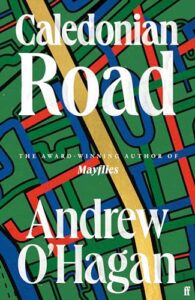
This is a huge, 650-page doorstop of a novel with an enormous cast of characters, but it was a surprisingly easy read. It encapsulates the massive inequalities of life in London, with dukes and Russian oligarchs living only a few blocks away from crumbling council estates. The novel brings together street gangs and aristocrats, people traffickers and eco-activists, all through the central figure of Campbell Flynn, a celebrity intellectual who is clearly due for a fall. A real “state of the nation” novel, and it was well worth the reading time. Despite the dizzying number of characters and storylines, it was never hard to follow, and the massive page count felt justified by the sheer scope of the novel.
No Name in the Street by James Baldwin
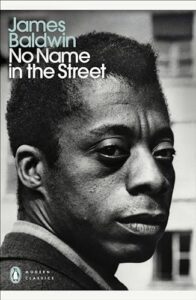
This is a very interesting kind of book, and quite hard to classify. I suppose you could call it a memoir since it covers a large part of James Baldwin’s life, but the structure is quite unusual—it proceeds more by association than by chronology or theme. In this way, it mimics the way memory functions. We learn a lot about both Baldwin and life in the USA in the mid-twentieth century, with especially interesting insights into major events in the Civil Rights movement such as the March on Washington and the assassinations of Martin Luther King Jr and Malcolm X.
Moral AI: And How We Get There
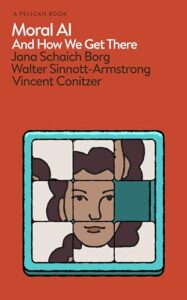
We are so far from “moral AI” right now that the title may make you laugh, but the authors are not naive. They know all the problems with the way AI is constructed right now, and they know that the tech bros have no interest in the ethical considerations of what they do. But they do make a good case for artificial intelligence based on a much better framework, and how it could be brought into existence if enough people fight for it.
Parallel Lines by Edward St Aubyn
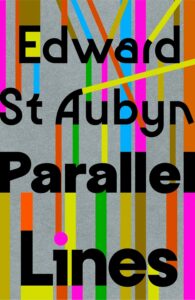
Like Caledonian Road, this is another London novel involving disparate characters being brought together. It’s beautifully written and explores some big themes. I wrote a full review here.
Into the Woods: A Five Act Journey Into Story by John Yorke
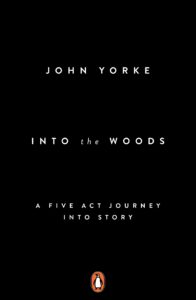
This is a fairly standard summary of the “hero’s journey” concept of story structure, which will be familiar to people who’ve read about this before. But sometimes the way things are presented makes them stick more, and I got more from this book than I have from similar books in the past. It’s written by a TV producer so is geared mostly to screenplays, but the lessons work for all kinds of stories.
The Dark Within Them by Isabelle Kenyon
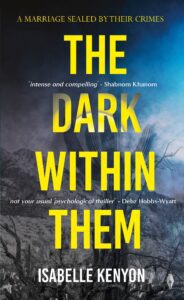
Finally, at the end of the month I read a thriller set in a tight-knit Mormon community in the USA. Things start out romantic and get very dark, very fast. It’s a compelling story about an abusive relationship, toxic masculinity, religious fervour, and the bad things that can happen when damaged people project their own darkness onto others while putting appearances and reputation ahead of morality.
What Did You Read This Month?
I always enjoy reading your thoughts in the comments, either on these books or on your own favourite or not-so-favourite reads of the month. So scroll down and enter your thoughts in the comment box.
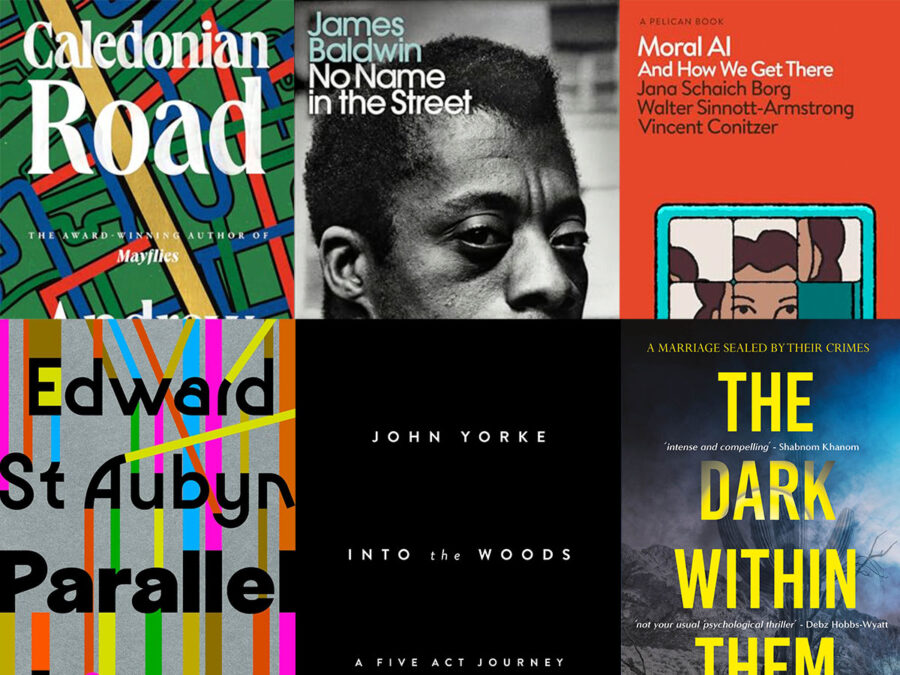


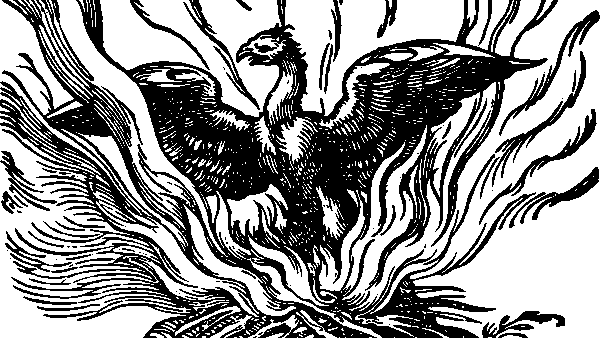
There are 11 comments
Definitely a good reading month! I’ve read the Yorke book. Many years ago so it’s fuzzy. I think you liked it much more than I did 😉 I’m currently charging my way through The Antidote by Karen Russell. Enjoying it very much but it’s from the library and there is a giant holds queue so no lollygagging allowed on it 🙂
Ah, I’ve heard good things about The Antidote. Read a review on a book blog recently and just spent ages hunting for it because my memory is so bad that I couldn’t remember which one it was! Here it is: https://ellethinks.wordpress.com/2025/03/10/the-antidote-by-karen-russell/
I love that you use the phrase “lollygagging”! I’ve only ever heard it in Barbados before, where it’s “lallygagging”, and I thought it was unique to the island. But some searching reveals that it originated in the mid-19th century USA, where it was originally spelt with the “a”. Your spelling changed and Barbados’s didn’t. Sorry for the tangent, but I find these things fascinating!
Lifeboats! I love that metaphor. Quite varied reading you did, and lots of pages. I also don’t care about the news, I do care about what happens around me, of course. I even voted for the school board person (which has such a low turnout), but I too find solace in my reading.
From your list, Baldwin is a must stop I need to do, hopefully sooner than later. I read Before we were free, by Julia Alvarez, a coming of age book of an adolescent growing up in Dominican Republic during the last years of the dictatorship. After, I read quite a different book called Reconstruction, set at the times of the protestants and anabaptists. It’s like a slimmer and faster pace Name of the Rose. Then 3 short books published in 1952 for a challenge/club hosted by Karen and Simon, and they were the fantastical and disturbing The Palm Wine Drinkard, by Amos Tutola, The piano, by Spaniard Carmen Laforet, quite impressive story, very modern in style. The third a short book of incredible poems by Rosario Castellanos. And I read 60% of The Age of Innocence. It’s impressive, I think Wharton is becoming an all time favorite author.
I think I care too much about the news! It depresses me, and I read it anyway, but I also need some time away from it.
Your reading sounds wonderful! I think I told you already that I loved The Age of Innocence, so I’m glad you’re enjoying it too. The name Amos Tutuola sounded familiar too, so I searched through my blog and realised I read a short story by him years ago: https://andrewblackman.net/2010/02/commonwealth-short-stories-part-2/. The Palm Wine Drinkard looks very interesting. I also looked up The Piano, but I don’t think there’s an English translation unfortunately.
Oh my, reading lifeboats – that’s totally a thing, as the kids say! I was really intrigued to hear what you made of James Baldwin (I think you know I have it too). I’m hoping to find the time this year for a full Baldwin project. I’ve resisted Caledonian Road for a while now, due to its size, but I admit I’m curious because my son lived on a side street off that road for several years. I’ve also read the John Yorke and found it to be better – easier to comprehend/more useful – than other books of its type. You had a good month!
OMG, it’s literally such a thing! Yes, I remember you bought the Baldwin on a 99p Kindle bender a while back, as did I. A full Baldwin project sounds wonderful—I look forward to that. I was surprised by how easy a read Caledonian Road was. It starts with one of those character lists, and it’s pages long! But O’Hagan does a very good job of keeping all the different characters and storylines manageable and orderly, and I found myself skipping through it quite quickly. Hope you like it if you do read it—I’d hate to send you on a 650-page slog!
I don’t know any of your April reads! Thank you for the excellent overviews. I, like others, love the lifeboat metaphor which is why I just finished another Nathaniel Miller book–this one takes place in Svalbard circa 1915+ (review coming) and his previous one was in Iceland (Red Dog Farm). But between those two I read A Day in the Like of Abed Salama (Palestine/Israel/West Bank) and then tonight I went to a screening of the academy award documentary No Other Land, also about Palestinians in the West Bank. Powerful and heartbreaking. From what I understand, it is not being shown in theaters in the US, but it can be screened independently or for a small group. I highly recommend.
You’re welcome! I didn’t know about your reads either, so it’s a good exchange. I also want to see No Other Land. It’s sad that an Oscar-winning film is not being shown in theaters in the US, but I’m glad you found a way to see it. I’ll look for it online. Thanks for the reminder!
An interesting selection of books, as ever! You’ve reminded me that I ought to get back to James Baldwin at some. I’ve only read a couple of his novels, Another Country and If Beale Street Could Talk (both excellent), but his non-fiction sounds just as good given his involvement and insights into the civil rights movement.
Ah, I’m coming from the other direction, Jacqui—I’ve read more of his non-fiction and want to try more of his fiction. I have Giovanni’s Room on my Kindle and want to try that soon. Those two you mentioned are definitely on my list too. Thanks!
Another great and varied month for you! Baldwin appears in a classic novel I’ve just finished, John A. Williams’ The Man Who Cried I Am (a fictionalised version of Baldwin, that is), which I’m sure you would enjoy/appreciate as much as I did. He wrote more than 25 books (this one is from 1967 and was an excellent introduction) and deserves to be more widely recognised. In April, I read the graphic novel of Octavia Buter’s The Parable of the Sower, as a way of refreshing the story in my mind so that I can read the other book (The Parable of the Talents) now. It’s the one set in what’s actually today, but was written decades ago, which seems to be ripped from the headlines with its wall and its warring, its grit and resilience.